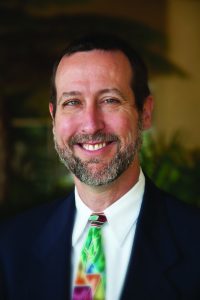Protect elderly from information scammers

Paul D. Witman
By Paul D. Witman
“Knowledge (information) is power.”
— Francis Bacon, 1597
Edward, 82, bought long-term-care insurance 25 years ago. But when circumstances conspired to force him to make claims against it, his provider delivered a perfect storm of information problems — confusing deadlines, conflicting bills and poor customer service. What should have been a simple response to an insurance claim required intervention by Edward’s daughter, 20-plus hours on the phone, five paper letters and escalation to the provider’s executive managers.
As is common with such matters, it’s hard to really know what went wrong. But Edward did know that part of the insurance business was sold in the middle of his claim process. His daughter also knew that Edward received a check to his address but it was made out to another person. When she called customer service, the same question yielded different answers depending on who took the call. It appeared that answers were based on the agent looking at a complex set of information and making on-the-spot judgment calls as to claims, payments and other such issues. No online service was available to the customer to see the data for themselves.
One error on Edward’s part — failure to pay a bill (the right bill) or not providing all the right paperwork for a claim — could have caused the loss of his long-term-care insurance benefits, cheating him out of the tens of thousands of dollars of insurance coverage that he had paid for over the prior 25 years.
Some months later, Edward received a call from someone who sounded, to him, like his only grandson, Perry. “Perry” said he had been arrested for drunk driving and asked Edward to send him money and not tell his parents. A “public defender” joined in on the conversation, reiterating the urgency of the need for money to pay “Perry’s” bail and asking Edward to send Wal-Mart gift cards to pay the bail.
It seems ridiculous on its face, but not to a vulnerable member of society to whom the voice sounded real. Edward wanted to help but knew in his gut that it just didn’t sound right. Fortunately, he deferred sending money until he contacted his grandson directly. These scams take many forms — fake IRS agents, fake tech support calls, fake Nigerian princes, the list goes on. All are intended to take advantage of people by getting either identifying information, their money, or both.
We’ve all encountered situations like this — and some of us have fallen victim to them. Ethically, those who hold the power (information, in this case) are obliged not just to use it responsibly but to use it to protect the vulnerable in society.
Insurance companies can and should make customer information available online, so that customers or people helping them can see it and address issues promptly when something is not as expected. Claims status, power-of-attorney status and billing status should all be communicated clearly, with up-to-date information available, along with explanations of why any of those statuses have changed.
Phone providers should at least offer the service of blocking or managing “junk” phone calls. The common but barely-useful model of allowing each customer to hand-enter numbers they want to block is not adequate. Services that leverage the shared intelligence of their customer base to identify junk calls and block them proactively should be provided. No More Robocalls (nomorobo.com) can do this for many but not all phone customers and it requires a good bit of effort to set up. There’s no reason that the phone providers can’t offer a similar service at least as effective, if not more so. There’s no better way to put a lid on scam phone calls than to keep them from getting through to those who might fall prey to them.
All those who hold in trust their customers’ information should be held to higher standards.
• Paul D. Witman is a professor of information technology management in the California Lutheran University School of Management.











